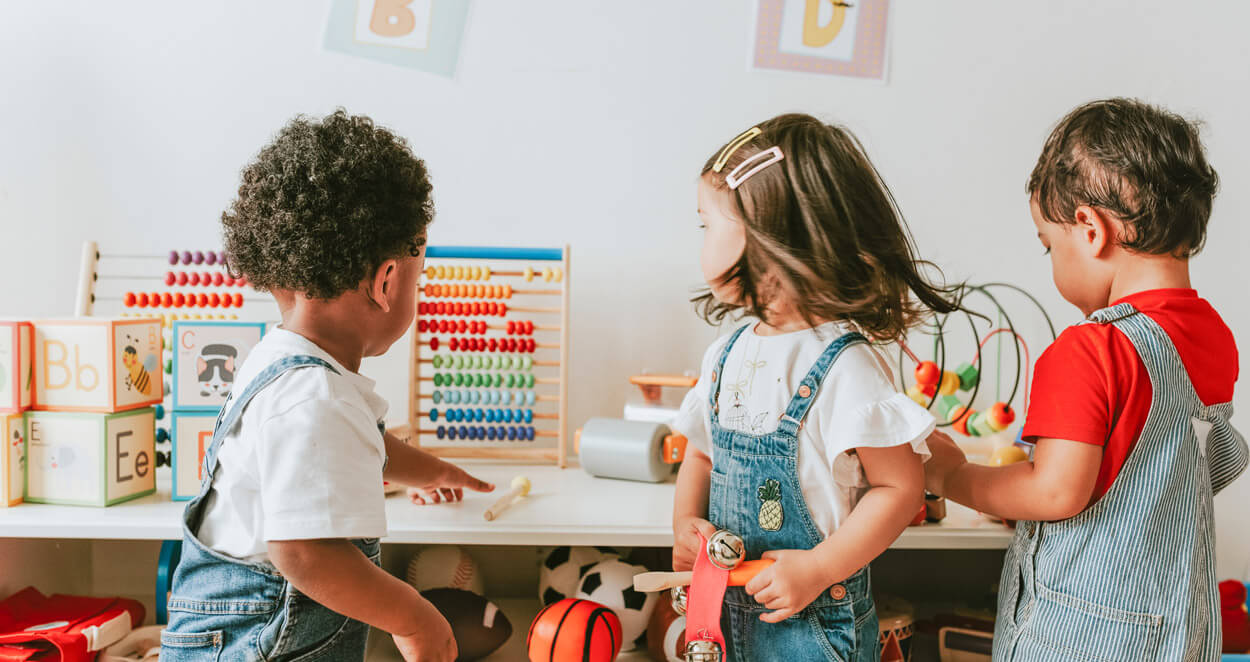How toddlers make friends

8 Jan 2020
Friendship is a really important stage in your little one’s development: not only does having friends help with language and social skills, but it also widens their world beyond caregivers and siblings.
Babies are born with a natural social instinct, but to make friends, your little one has to learn that others think and act differently to them. They have to learn to accept and accommodate these differences – a pretty difficult concept to grasp when the whole world is revolving around them at this stage.
Developing empathy is a very important social skill, but this only happens in most toddlers from around the age of three onwards. Up until the age of two, children are in what is known as “parallel play mode”: this means that they will play alongside others but will not necessarily interact.
So what can you, as a loving parent, do to help your little one get on the path to making great friendships?
Start slow
Set up one-on-one playdates. Too many children can overwhelm your little one. By starting slow, they will become more used to the idea over time and it will eventually become normal to have someone else to interact with and accommodate.
Try to keep playdates or social events to two hours at most because toddlers tire easily after so much activity and excitement. Also, try to schedule events when your toddler will be in their best mood of the day – for most toddlers, this is when their tummy is full and they have had a refreshing nap.
Get involved and lead by example
Show your little one how it’s done. Toddlers are very impressionable and often learn by imitating others (consciously and unconsciously). Involve everyone who is present, this includes other toddlers and their parents. Show them how to ask nicely for a toy, or show them how happy sharing makes you and others.
Mediate
Stay reassuringly close in the beginning, especially if your child is shy. Sit near or with your little one and their playmate to address any conflicts if and when they arise. Encourage taking turns in necessary activities, though in the beginning, to be safe, make sure you have ample toys and crayons to go around.
Don’t force it
Toddlers don’t like to be forced – with anything. If the playdate is not going well, cut it short and try again another time. Toddlers are, by nature, egocentric and impulsive. Some will grasp the concept of friendship faster than others, so it’s important to not compare your toddler to others.
The most important things to keep in mind are:
- Be patient – forcing the situation can make your little one even more reluctant towards future social events and/or playdates.
- Be consistent – encourage sharing and taking turns within the home between you, your partner, siblings, etc.
- Be encouraging – your little one will get it eventually. Plant the seeds and let their social development blossom.